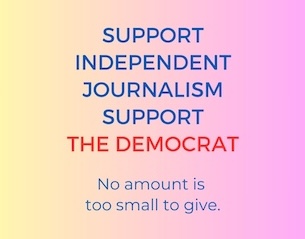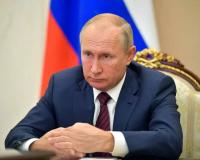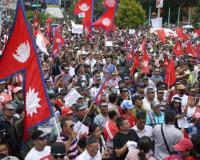- World
- Russia Approves ‘Extremist’ Bill that Would Bar Critics from Running in Elections
Russia Approves ‘Extremist’ Bill that Would Bar Critics from Running in Elections
Russia’s upper house on Wednesday overwhelmingly backed legislation expected to be used to ban allies of Kremlin critic Alexei Navalny from running in elections, the latest move in a crackdown on the opposition. The bill, overwhelmingly approved by the Federation Council, would make it impossible to run in parliamentary elections for leaders, sponsors and rank-and-file
Russia’s upper house on Wednesday overwhelmingly backed legislation expected to be used to ban allies of Kremlin critic Alexei Navalny from running in elections, the latest move in a crackdown on the opposition. The bill, overwhelmingly approved by the Federation Council, would make it impossible to run in parliamentary elections for leaders, sponsors and rank-and-file members of “extremist” groups.
A Russian court is considering whether to designate Navalny’s political network an extremist organisation and could make a decision as early as next week. Critics of President Vladimir Putin say Russian authorities are widening a campaign against the opposition ahead of parliamentary elections in September.
After Navalny was jailed and many of his allies arrested, two more political activists, Dmitry Gudkov and Andrei Pivovarov, were detained over the past two days. Pivovarov, the former executive director of Open Russia, a just disbanded pro-democracy group, was pulled off his Warsaw-bound flight on Monday.
The 39-year-old faces up to six years in prison for his involvement in an “undesirable” organisation. A court was expected to decide whether to remand him later Wednesday. On Tuesday, police detained Gudkov after conducting raids on homes of his allies and relatives.
The 41-year-old former opposition lawmaker faces up to five years in prison for allegedly failing to pay a debt under an old lease agreement. Gudkov is likely to be formally charged on Wednesday, said human rights association Agora whose lawyer represents him.
Putin’s spokesman Dmitry Peskov said the detentions were a purely legal matter. “The charges put forward by law enforcement have nothing to do with politics,” he told reporters. Russian authorities had for years tolerated opposition groups including Navalny’s political movement but Kremlin critics say authorities are moving to remove any vestiges of dissent.
Yanked off plane
Navalny, who barely survived a near fatal poisoning with a Soviet-designed nerve agent last summer, was imprisoned for two-and-a-half-years on old embezzlement charges in February. A total of 146 senators backed the bill approved on Wednesday, while one voted against and one abstained. The legislation will have to be signed by Putin to become law.
“Not a single civilised country allows extremists in its official organs,” senator Andrei Klimov said ahead of the vote. The bill, which has already been backed by parliament’s lower house, can affect not only senior members and activists of Navalny’s political network but tens of thousands of Russians who supported its work with donations.
Leaders of such groups will not be able to run in parliamentary elections for five years while members and those who helped finance their work will be banned from running for three years. Pivovarov was detained just days after Open Russia, founded by self-exiled Putin critic Mikhail Khodorkovsky, formally disbanded to shield its members from possible prosecution.
The group was designated an “undesirable” organisation in Russia in 2017 in line with a law targeting foreign-funded groups accused of political meddling. Pivovarov was yanked off the plane after authorities in Russia’s ally Belarus on May 23 diverted an EU airliner to Minsk to arrest a dissident on board, provoking an international outcry.
Read all the Latest News, Breaking News and Coronavirus News here











